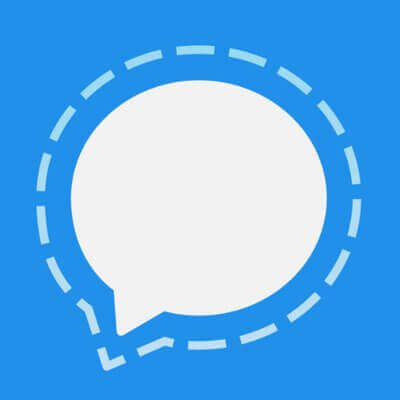Safe Sexting: 4 Apps You Need to Protect Your Digital Sex Life
Keep your intimate online activity private with these resources.

By Tom Woodley
In the digital age, we depend more and more on electronic communication. In a previous article, we covered how global surveillance has compromised the privacy of mediums we use for our most intimate communications. Here, we would like to provide some resources that can be used to keep your personal conversations and information safe.
It isn’t only intelligence agencies that seek to peek past the curtain into who we talk to and what we do online. Hackers also pose a security threat, and can be less discriminating about whom they target, and to whom they distribute stolen data. In 2014, hackers stole and leaked almost 500 explicit photos from celebrity iCloud accounts. The same year, thousands of Snapchat pictures and videos were also leaked when hackers broke into website Snapsaved.
With such incidents in mind, here are a few resources you can use to better protect yourself.
1. Signal
 Signal is known as the “the gold standard” of instant messaging. It allows users to send text messages, images, and to make voice and video calls, while storing as little data as possible in its servers. End-to-end encryption ensures that only the sender and recipient can read messages; only the communicating parties possess the cryptographic keys needed to decrypt a conversation.
Signal is known as the “the gold standard” of instant messaging. It allows users to send text messages, images, and to make voice and video calls, while storing as little data as possible in its servers. End-to-end encryption ensures that only the sender and recipient can read messages; only the communicating parties possess the cryptographic keys needed to decrypt a conversation.
This is how iMessage works too (although by default it backs up to iCloud), in contrast to Blackberry Messenger, Kik, and Telegram, where keys remain in the possession of the provider. Facebook messenger also offers end-to-end encryption, but it’s not the default mode of communication (to enable it, follow the instructions here). SMS messages are another story entirely; suffice to say they’re less than ideal for confidential communication.
Signal’s encryption is so good that Whatsapp also began using it as of 2016. But Signal collects less information about its users, and doesn’t save photos to their camera roll by default. As for video chats, Signal is also a better bet than Microsoft’s Skype, which has claimed to offer end-to-end encryption, but been caught allowing the NSA to monitor and store conversations.
2. Privates!
 Think of Privates! as Snapchat on security steroids. It even looks a lot like Snapchat, at least on the surface. But it has extra features to ensure your images aren’t stored or passed on.
Think of Privates! as Snapchat on security steroids. It even looks a lot like Snapchat, at least on the surface. But it has extra features to ensure your images aren’t stored or passed on.
When you send a snap over Snapchat, it’s stored on Snapchat’s servers until the recipient views it, up to a maximum of 30 days. Snapchat’s relationship with privacy has been troubled. In 2014, it settled charges with the Federal Trade Commission after it was revealed third-party apps could save snaps, and videos on Android phones weren’t being deleted. Since then, Snapchat has cleaned up its act, although they do sometimes hand over account information and unopened snaps to law enforcement officials.
Privates!, on the other hand, uses end-to-end encryption, so not even they can see your, well, privates. The app also offers additional protection against screenshots. A sender can require a recipient to tap two buttons on screen to see an image, or to hold their phone completely still and/or up to their face. Users can even erase unread messages. If you’ve ever sent a message and regretted it, Privates! has your back.
3. Disckreet
 Another great option for sharing photos and videos is Disckreet. Calling itself “the safest way to record your intimate moments as a couple,” Disckreet encrypts your personal recordings and provides novel solutions to problems that have become all too common.
Another great option for sharing photos and videos is Disckreet. Calling itself “the safest way to record your intimate moments as a couple,” Disckreet encrypts your personal recordings and provides novel solutions to problems that have become all too common.
A prime example is sharing without consent. A 2015 study by the Kinsey Institute at Indiana University found that almost a quarter of people share a partner’s sexts with three or more friends. To prevent this, Disckreet requires both partners to enter their passcode to access recordings, and features screenshot detection that locks the offender out of the account for ten minutes.
These security features are also aimed at addressing the problem of revenge porn. Today there are thousands of websites dedicated to images and videos uploaded online without consent. With Disckreet, if something does go wrong in a relationship, an ex can’t access recordings without permission. A user can choose to wipe their recordings from both their own devices and the other person’s at any time.
4. Proton Mail
 For intimate communications over email, there’s Proton Mail. Proton Mail is an end-to-end encryption webmail service that actually looks a lot like Gmail. But as with the superficial similarity of Privates! to Snapchat, appearances can be deceiving.
For intimate communications over email, there’s Proton Mail. Proton Mail is an end-to-end encryption webmail service that actually looks a lot like Gmail. But as with the superficial similarity of Privates! to Snapchat, appearances can be deceiving.
Gmail encrypts all emails stored in Google’s systems but retains the decryption keys. Their automated systems scan your emails for advertisers and even understand them enough to suggest replies. In contrast, Proton Mail boasts “Zero-access encryption,” meaning it can’t read your emails. Nor can hackers, internet service providers, or state-sponsored snoops. Moreover, since its servers are in Switzerland, they’re protected by Swiss privacy laws, whereas as part of the PRISM program, Google passes on an untold number of communications to the NSA.
Of course, Google can still track your online activities using Google Chrome, Google Search, and Google AdSense. It’s too big a topic for this article, but check out Tor for private browsing and DuckDuckGo.com for searching the web.
Image sources: Phnom Penh Investigations, Privates!, Signal
Leave a reply
You must be logged in to post a comment.

















